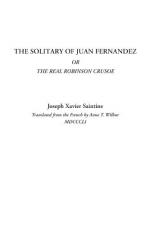Deprived of exercise and of aliment, his thoughts, no longer sustained by reading the Holy Book, were day by day lost in a chaos of dreams and reveries.
A prey to terrors which he could not explain, he feared darkness, he trembled at the slightest sound of the wind among the branches; if it blew violently, he thought the trees would be uprooted and crush him; if the sea roared, he trembled at the idea of the submersion of his entire island.
When he traversed the woods, especially if the heat was great, he often heard, distinctly, voices which called him or replied. He caught entire phrases; others remained unfinished. These phrases, connected neither with his thoughts nor his situation, were strange to him. Sometimes he even recognized the voice.
Now it was that of Catherine, scolding her servants; now that of Stradling, of Dampier, or one of his college tutors. Once he heard thus the voice of one of his classmates whom he least remembered; at another time it was that of his old admiral, Rourke, uttering the words of command.
If he attempted to raise his own to impose silence on these choruses of demons who tormented him, it was only with painful efforts that he could succeed in articulating some confused syllables.
He no longer talked, but he still sang; he sang the monotonous and mournful airs of his psalms, the words of which he had totally forgotten. His memory by degrees became extinct. Sometimes even, he lost the sentiment of his identity; then, at least, his state of isolation, and the memory of his misfortunes ceased to weigh upon him.
He nevertheless remembered, that about this time, having approached Swordfish Beach, attracted by an unusual noise there, he had seen it covered with soldiers and sailors, doubtless Spaniards. The idea of finding himself among men, had suddenly made his heart beat; but when he descended the declivity of the hills in order to join them, several shots were fired; the balls whistled about his ears, and, filled with terror, he had fled.
Once more he had found himself there, but without intending it, for then he could no longer find his way, by the points of the compass, through the woods and valleys leading to the shore. Ah! how had his ancient abode changed its aspect! How many years had rolled away since he lived there! The little gravelled paths, which conducted to the grotto and the mimosa, were effaced; the mimosa, its principal branches broken, seemed buried beneath its own ruins; of his fish-pond, his bed of water-cresses, not a vestige remained; his grotto, veiled, hid beneath the thick curtains of vines and heliotropes, was no longer visible; his cabin had ceased to exist,—overthrown, swept away doubtless, by a hurricane, as his inclosure had been. He could discover the spot only by the five myrtles, which, disembarrassed of their roof of reeds and their plaster walls, had resumed their natural decorations, green and glossy, as if the hatchet




